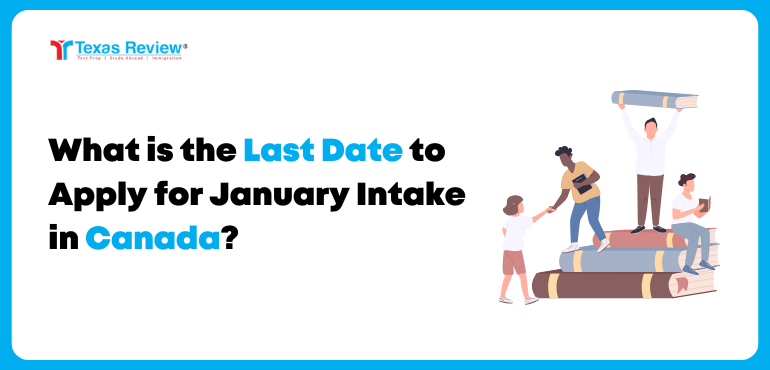
Canada is one of the most popular destinations for international students, offering a high-quality education system and globally recognized institutions. If you’re considering applying for the January intake in Canada, it’s crucial to understand the application timelines, available courses, and the unique advantages this intake provides.
Why is the Winter Intake Important?
The winter or January intake in Canada is the second-most popular option after the fall intake. While not as extensive as the September intake, it offers a valuable alternative for students who may have missed earlier application deadlines, need more preparation time, or are looking to pursue specific programs. The January intake is a lifeline for those seeking flexibility, especially for master’s programs and diplomas.
January Intake Courses in Canada
Universities in Canada offer a variety of courses during the January intake. These range across fields such as engineering, business management, computer science, healthcare, and more. Some notable examples include:
- Master’s Programs: Many universities admit students into specialized master’s programs like Data Science, Cybersecurity, and Business Analytics.
- Diplomas and Certificates: Popular among international students, these programs offer job-specific skills and are often more affordable.
- Undergraduate Programs: Though limited, a selection of undergraduate courses is available during the winter intake.
Before choosing a program, research its availability and verify the admission deadlines as they can vary between institutions.
Universities and Deadlines for January Intake in Canada
Here’s a list of universities and their typical application deadlines for the January intake:
- University of Toronto: November 1
- McGill University: October 15
- University of British Columbia (UBC): December 1
- University of Alberta: November 15
- Dalhousie University: October 31
- Simon Fraser University: December 15
- University of Ottawa: November 25
- Queen’s University: October 30
- University of Manitoba: November 1
- Western University: December 1
Note: These dates may change annually, so always confirm directly with the university to stay updated.
Late applicants may still have an opportunity if universities extend their deadlines or offer rolling admissions. However, it’s advisable to apply early to secure your spot and arrange for visas and other documentation.
Application Steps for the January Intake
Here are the application steps that can help you:
- Research Programs: Identify courses that match your interests and goals.
- Check Eligibility Requirements: This includes academic credentials, language proficiency tests (IELTS, TOEFL), and prerequisite courses.
- Prepare Documents: Gather transcripts, reference letters, personal statements, and standardized test scores.
- Submit Your Application: Apply before the deadline through the university’s portal or centralized systems like OUAC (Ontario Universities’ Application Centre).
- Follow Up: Track the status of your application and respond to additional information requests promptly.
Pros & Cons of Applying for the Winter Intake in Canada
Here are the pros and cons you must know before you apply for the winter intake in Canada:
Pros:
- Smaller Class Sizes: Personalized attention from professors and better networking opportunities.
- Flexible Timeline: Ideal for students completing their studies mid-year or preparing for standardized tests.
- Ample Opportunities: Access to scholarships, internships, and part-time jobs similar to those available in the fall intake.
Cons:
- Limited Course Options: Fewer programs are available compared to the September intake.
- Fewer Extracurricular Activities: Many campus activities are designed around the fall cohort.
- Harsh Weather: January marks the peak of winter, which can be challenging for new arrivals.
Practical Tips for a Successful Application
Here are the tips for a successful application for your January intake:
- Start Early: Initiate the process 8–10 months in advance.
- Engage with Admissions Offices: Ask questions and confirm specific program requirements.
- Secure Funding: Apply for scholarships, as many institutions offer financial aid even for winter intakes.
- Plan Visa Applications: Begin your visa process immediately after receiving your admission offer, as it can take several weeks to complete.
Final Thoughts
The January intake in Canada is an excellent choice for students who value flexibility and are eager to start their studies without waiting for the next September cycle. With careful planning and timely applications, you can secure a spot in some of Canada’s top institutions. Make sure to research thoroughly and stay organized to meet the last date to apply for January intake in Canada and achieve your academic goals.














